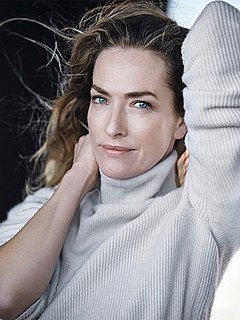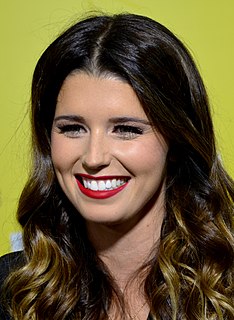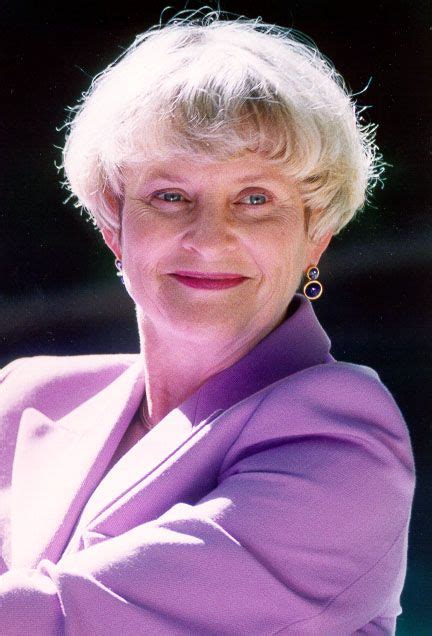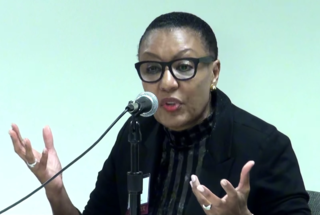A Quote by Jessica Valenti
It just struck me as really odd that there were all of these conversations going on about what young women were up to. Were young women having too much sex? Were young women politically apathetic? Are young women socially engaged or not? And whenever these conversations were happening, they were mostly happening by older women and by older feminists. And maybe there would be a younger woman quoted every once in a while, but we weren't really a central part of that conversation. We weren't really being allowed to speak on our own behalf.
Quote Topics
About
Allowed
Apathetic
Behalf
Being
Central
Conversation
Conversations
Engaged
Every
Feminists
Going
Happening
Having
Just
Maybe
Me
Mostly
Much
Odd
Older
Older Women
Once
Our
Own
Part
Politically
Really
Sex
Socially
Speak
Struck
Too
Too Much
Up
Were
Whenever
While
Woman
Women
Would
Would Be
Young
Young Women
Younger
Related Quotes
I specially want to have young women not to wait as I did until my children were grown, but young women to come in to gain their seniority so they could be respected leaders at a much earlier age. It's important for all women to see young women who share their experience whether it's as a working mom with young children, who understands the struggle and the aspirations of young women in a similar situation. And if they don't have family and they're pursuing their career women should see that as well.
I was a young feminist in the '70s. Feminism saved my life. It gave me a life. But I saw how so much of what people were saying was not matching up with what they were doing. For example, we were talking about sister solidarity, and women were putting each other down. We were talking about standing up for our rights, and women weren't leaving abusive relationships with men. There were just so many disconnects.
We've been growing our readership every month, and we're kind of like, where are they all coming from? This is wonderful! And I think one of the best surprises was that you hear so often that young women don't care about feminism, that young women don't identify as feminists. But really, the majority of our readers are young women. So to see so many young people kind of get involved and really take to Feministing.com was a really exciting thing.
Not long ago, women in Afghanistan were required by Taliban leadership to be covered nearly head-to-toe and were barely allowed to leave the home; that young Afghan women today are not only accessing an education but are able to meet young people from around the world and cheer on a robot of their own making is something beautiful.
There are so many issues that impact women. When we talk about prison reform, for example, women were [once] sterilized in women's prisons. When they were giving birth, they were asked to sign paperwork but they weren't even completely conscious of what they were signing. That sounds like something that would never happen in America, but it was happening, not just in America, but in [California], one of the most progressive states in the United States.
I remember at the time - right before we started Feministing.com - doing a Google search for the term "young feminism" and the term "young feminist," and the first thing that came up was a page from the National Organization for Women that was about 10 or 15 years old. And it just struck me as so odd that there was all of this young feminist activism going on, but that it wasn't necessarily being represented online, that the first things in a Google search to come up were really, really old. I think to a certain degree we really filled a gap, and that's why we got such a large readership.
Well into the 19th century there were pronouncements from just about every branch of science and medicine that reading, writing, and thinking were dangerous for women. Articles in the Lancet declared that women's brains would burst and their uteruses atrophy if they engaged in any form of rigorous thinking. The famous physician J.D. Kellogg insisted that novel reading was the greatest cause of uterine disease among young women and urged parents to protect their daughters from the dreaded consequences of print.
I remember realizing, when I did Little Women [1994], that that was the only time girls that age were being written about. It was always boys - from David Copperfield to Lord of the Flies to Holden Caulfield. There were never young women going through adolescence or teen years; there were only little girls.
When I look in the mirror I see the woman I knew I wanted to be as a child. When I was a young girl, I had a vision of the woman I wanted to be. And I often reached out to women of color in America for inspiration. My mother would regularly buy Essence and Ebony. I would look at those magazines filled with images of professional, intelligent women of color who knew who they were, who enjoyed who they were, and who were surrounded by other people who enjoyed who they were. When I look in the mirror, I'm really glad that that's what I see today, but it took awhile to get here.
I had very supportive parents that made the way for me, even at a time when there were very few women - no women, really; maybe two or three women - and very few, fewer than that, African-American women heading in this direction, so there were very few people to look up to. You just had to have faith.
In our young minds houses belonged to women were their special domain, not as property, but as places where all that truly mattered in life took place - the warmth and comfort of shelter, the feeding of our bodies, the nurturing of our souls. There we learned dignity, integrity of being; there we learned to have faith. The folks who made this life possible, who were our primary guides and teachers, were black women.




































